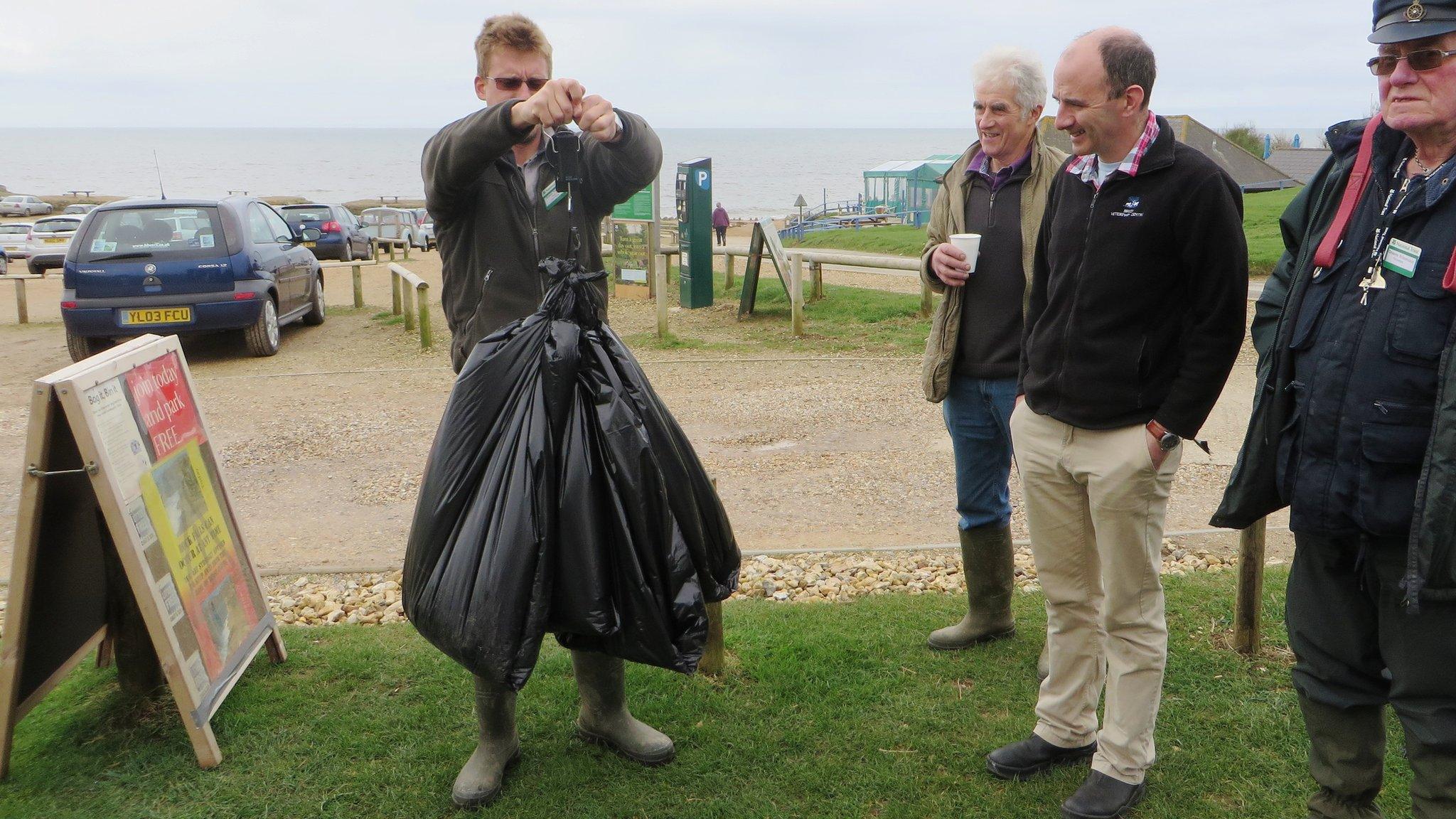Record number of England's beaches face water quality failures
- Published
- comments
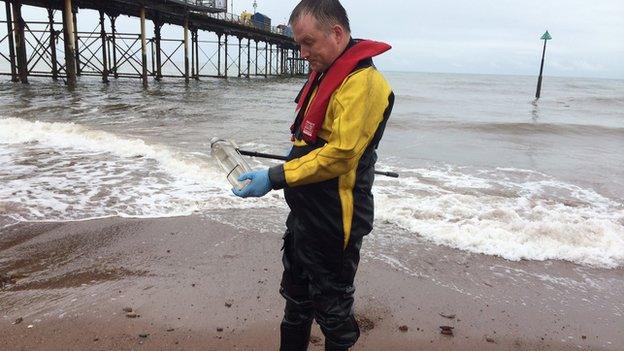
Samples will be taken from 400 sites across England
A record number of England's beaches are at risk of failing to meet EU water quality standards this year, the Environment Agency has warned.
It suggests new EU regulations will make it much harder for beaches to attain the top "excellent" rating.
More than 99% of English beaches passed last year's tests, but this is forecast to drop by 6%, with the water of 25 beaches possibly classed as "poor".
Among those at risk are ones in Margate, Ilfracombe and Blackpool.
Others at risk are in Lancing, Lyme Regis and Fleetwood.

1: Allonby, Cumbria
2: Blackpool Central
3: Blackpool North
4: Budleigh Salterton, Devon
5: Burnham Jetty North, Somerset
6: Clacton (Groyne 41), Essex
7: Cleveleys, Lancashire
8: Fleetwood, Lancashire
9: Hastings, Sussex
10: Haverigg, Cumbria
11: Henleaze Lake, Bristol
12: Ilfracombe Wildersmouth, Devon
13: Instow, Devon
14: Lancing, Beach Green, West Sussex
15: Lyme Regis Church Cliff Beach, West Dorset
16: Morecambe South, Lancashire
17: Mothecombe, Devon
18: Porth, Cornwall
19: Porthluney, Cornwall
20: Seaton, Cornwall
21: Silloth, Cumbria
22: Spittal, Northumberland
23: Staithes, North Yorkshire
24: Teignmouth Town, Devon
25: Walpole Bay, Margate, Kent
Fit to bathe?
Each week until the end of September, Environment Agency (EA) officials will wade in to the sea and in to lakes to take water samples at 400 locations across England.
The samples will be analysed within 24 hours at a laboratory near Exeter.
The agency's results will be available on a new website, external.
At the end of the summer, sites will have to display signs at all bathing areas showing if the standards have been passed and whether or not people should swim.
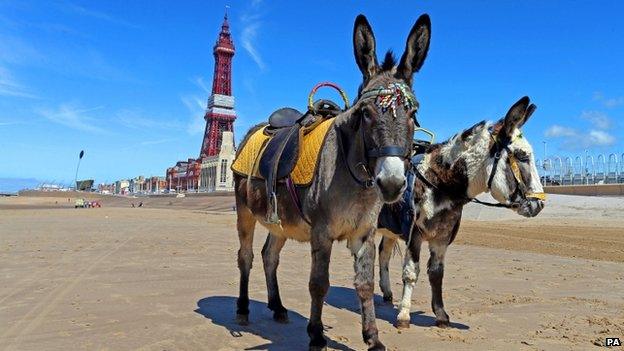
Blackpool North is one of the beaches at risk of failing to meet water quality standards
The measurements upon which ratings are based assess the levels of certain bacteria, including E. coli and intestinal enterococci, per 100ml of water.
Under the new EU regulations, in order to attain the "excellent" rating, the concentration level of bacteria can be only half of what used to be allowed.
It will also be harder to avoid the bottom "poor rating" under the regulations, introduced in January.
Weather impact
According to the EA, the two most significant sources of pollution that reduce water quality are sewage from water company infrastructure and pollution from agriculture.
The weather can also have a significant impact, with heavy rainfall washing pollution into the sea.
The hot, dry summer of 2013 saw lots of beaches getting an excellent rating, while the downpours of the second wettest summer on record, in 2012, reduced water quality.
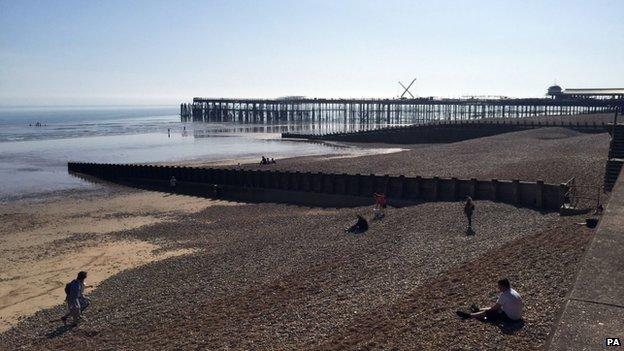
Downpours during wet summers have reduced water quality at beaches like Hastings
This is on top of local issues such as mess created by dogs and seagulls, misconnected drains, or fats being poured down the drains.
However, the condition of the waters of the English coastline has dramatically improved.
In 1988 only 65% of beaches were declared fit for bathers.
'Essential for health'
Water companies have invested heavily, pouring £2bn into direct improvements to bathing water quality since 1990.
They have also pledged to spend £350bn over the next 15 years.
Ed Mitchell, executive director of environment and business at the EA, said: "Good bathing water is essential for people's health, local tourism and economic growth, and these new higher standards for bathing water will further protect the public."
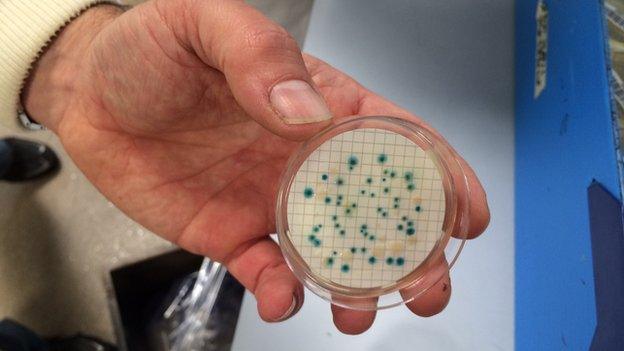
Scientists will measure levels of bacteria in the water samples
Dr Stephen Bird, chief operating officer of South West Water, said that last year only one beach in the region failed the standards. With the new tests, this could now be nine.
He said: "We have already invested a huge amount in the bathing waters if you look in to our previous investment of £2bn.
"We are talking about another £20m to achieve these tighter standards, so in terms of additional investment, there's virtually no significant impact on the bill at all for these extra standards."
Follow Claire on Twitter, external.
- Published22 June 2014
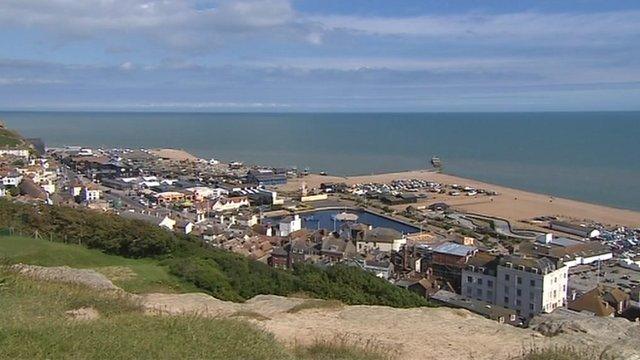
- Published5 April 2014
